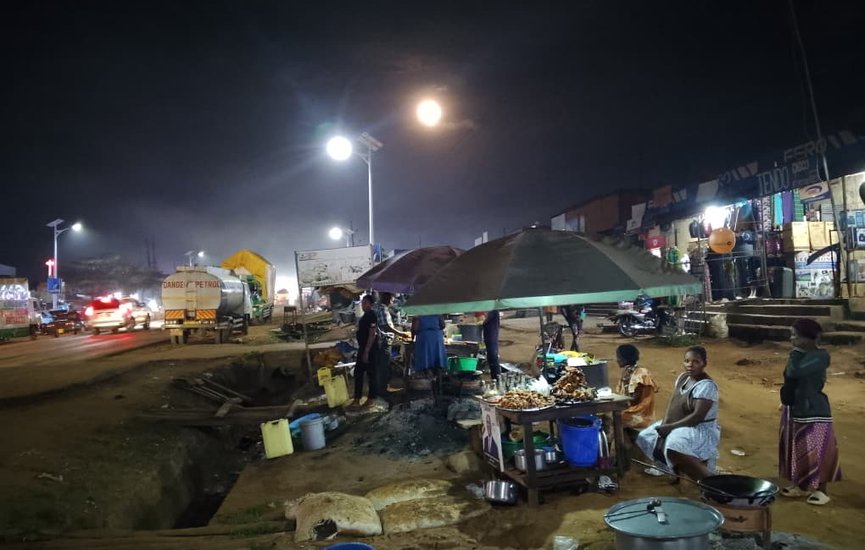In Buwama Town Council (Mpigi District, Uganda), the recent extension and activation of street lighting has given fresh life to the night‑time economy. With better visibility and heightened security, roadside vendors, bars, salons and evening services are staying open later and serving more customers.
Local business owners say that where darkness once forced early closures, the glow of new lights now draws people into the town centre after dusk. The shift has led to increased earnings, safer streets and a more vibrant evening culture.
Town officials confirm that the lighting upgrades were part of a solar‑and‑grid infrastructure push included in the local development plan. Previously, low‑light conditions made night trading risky; improved illumination has reduced crime and encouraged both customers and operators to stay out later.
Observers note that Buwama’s experience reflects a wider trend in Uganda: strong night‑time economies emerge when public infrastructure supports safe and accessible evening activity. In turn, the extended hours of trade boost local incomes and municipal revenue, provided safe, lit streets make people feel secure enough to spend and linger.
Still, the transformation is not yet complete. Some peripheral areas remain poorly lit, and business owners stress that ongoing maintenance and timely repairs will be critical. If those challenges are addressed, Buwama’s new night economy may offer a model for other towns seeking to capitalize on evening trade.
